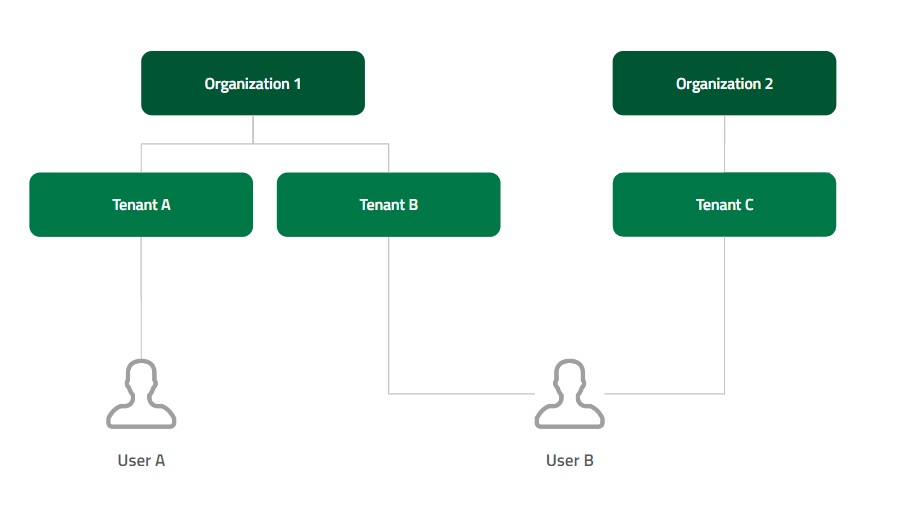This document provides information about the Cloud Security’s multi-tenant architecture and a definition of its three key levels of components.

Organization
An organization is the first level in the multi-tenant architecture of Cloud Security. Each organization is a self-contained entity that has its own set of tenants. At the organization level, there is always at least one administrator. By default, when an organization is created, it comes with one tenant associated with it.
Tenant
A tenant is the second level of the multi-tenant architecture. It represents a completely isolated and segregated environment within an organization. Every organization must have at least one tenant, and each tenant is always affiliated with one organization. Furthermore, each tenant must have at least one administrator.
Users
Users are the individuals who perform actions within the tenants. Users can be part of one or more tenants, either within the same organization or across different organizations. Users within Cloud Security can have different roles, which determine their access and responsibilities. Here are the key roles within the multi-tenant architecture:
| Role | Product | Description |
|---|---|---|
| Cloud Security - Tenant Administrator | Cloud Security | Full access to Cloud Security resources, and is responsible for the overall management. |
| Cloud Security - Tenant Auditor | Cloud Security | Read-only access to Cloud Security’s audit reports. |
| Cloud Entitlements - Basic User | Cloud Entitlements | Basic access to senhasegura Cloud Entitlements resources. |
| Cloud Entitlements - Administrator | Cloud Entitlements | Full access to Cloud Entitlements resources. |
| Cloud Entitlements - Auditor | Cloud Entitlements | Read-only access to all Cloud Entitlements resources. |
| Certificate Manager - Basic user | Certificate Manager | Read-only access to all Certificate Manager resources. |
| Certificate Manager - Administrator | Certificate Manager | Full access to Certificate Manager resources. |